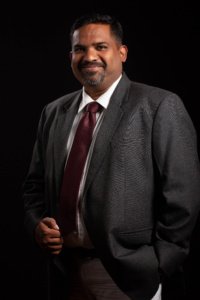
Kafmar Environmental Services LLP elaborates on Kessel, a vertical of their company, which focuses on waste water solution products in an eco-friendly manner
Kafmar Environmental Services LLP is owned by Caesar Fernandes in partnership with his wife, Dizzy. Kafmar offers holistic, practical, cost-effective, and sustainable solutions to the challenges found in water bodies left untouched over decades. Kafmar moves towards complimenting the environment, adding to biodiversity, and improving water quality. They motivate and encourage the business community and government bodies to care for nature and ensure that it is sustainable for future generations. They are also involved in various activities to safeguard mother nature as a part of their social responsibility.
Kafmar offers different products and services in three different segments. The Waste Water Management Segment includes bio digestors/bio-sewage treatment plants, kitchen waste water management, and fuel separators for car and bike service centres.
The Amphibious Excavator and Amphibious Weed Harvester takes care of land clearing and remediation work at mining areas, plantations, and swampy land areas, deepening and widening of canals and river ways, building bunds, flood prevention and land reclamation, building walls for fish and shrimp ponds as well as wastewater treatment ponds, digging trenches for oil and gas piping installation in water bogged and swampy environments, transporting and clearing obstacles at landslide and earthquake areas, building water irrigation bunds at paddy fields and plantations, wetland constructions, de-weeding of ponds, lakes, rivers, tributaries, and nallahs.
The Fuel Segment consists of mobile diesel deliveries at one’s door step and pre-fabricated diesel storage tanks.
Apart from these three segments, Kafmar provides various amenities to the hospitality industry like pre-fabricated oil and grease separators, pre-fabricated and single-phase electricity operated bio-sewage treatment plants and bio-digesters with zero maintenance.
Kessel, a German company which deals with waste water solution products from plumbing equipment to non-returnable lifting stations for toilets and sewage, is another business vertical owned by Kafmar Environmental Services LLP. They have mini lifting stations for separate toilets and different kinds of equipment for kitchens. They also have drain channels for showers, bathrooms and other sanitary purposes.
One of the products that they are basically focusing on for Goa is oil-grease separators. These oil grease separators separate oil and grease from the waste water that goes out of the sink of the kitchen. As waste water is contaminating most of the small hotels in Goa, they leave it out directly in the soak pit.
So what happens is, in the filtrate this oil blocks all the sides of the soak pit which then starts acting like a tank and starts storing water. This water is not soaked up, which leads to pollution and harms the environment in the long run.
In Goa, this process is not monitored properly because the only mandate you need is to have a grease trap. It does not show any measurement, and they do not have any regulatory idea of how it works.
Kessel works under European standards which follows EN1825, regulations for an oil grease trap. This standard specifies requirements on selection of nominal sizes, installation, operation, and maintenance of grease separators.
Unfortunately, India doesn’t have any such regulations so people tend to go with low quality grease traps which do not function for extended periods. Kessel oil grease separators are made from polyethylene material hence they are not sticky, easy to clean and works on the principle of gravity. There are only two companies in the world that have a single chamber oil grease trap, one is Arco, and the other is Kessel. All the other brands or all the other grease traps have something called ‘Baffle Walls’; it is a system of many different chambers. Kessel works on the gravity principle and being a single unit, there is no partition in it, which traps the oil grease on top, and then the waste water continues to flow out.
Therefore the water that goes out of the soak pit is only the water without any impurities and oil. This oil can be skimmed out later and disposed separately so the ground is not polluted. This explains the principle or the working of the oil-grease separator.
Caesar Fernandes says, “We have to address restaurants at large who face this problem. Many are not aware that this product exists in the market and use a cheaper option. The cheaper alternatives have baffle walls and are available in SS and fibre tank which are extremely inconvenient to use and does not give the required results.”
Further, they mention that the Pollution Control Board is doing a great job in creating awareness amongst the hospitality industry about these separators, but much seriousness is needed from restaurant owners in the state.
At Kafmar, the team comprises of Caesar, his wife Dizzy and Saurabh Kumar. Regarding their future plans, Kafmar intends to spread awareness on water contamination, work towards pollution free water bodies, commence river/sea dredging services, and offer varied types of amphibious machinery and facilities in Goa.





